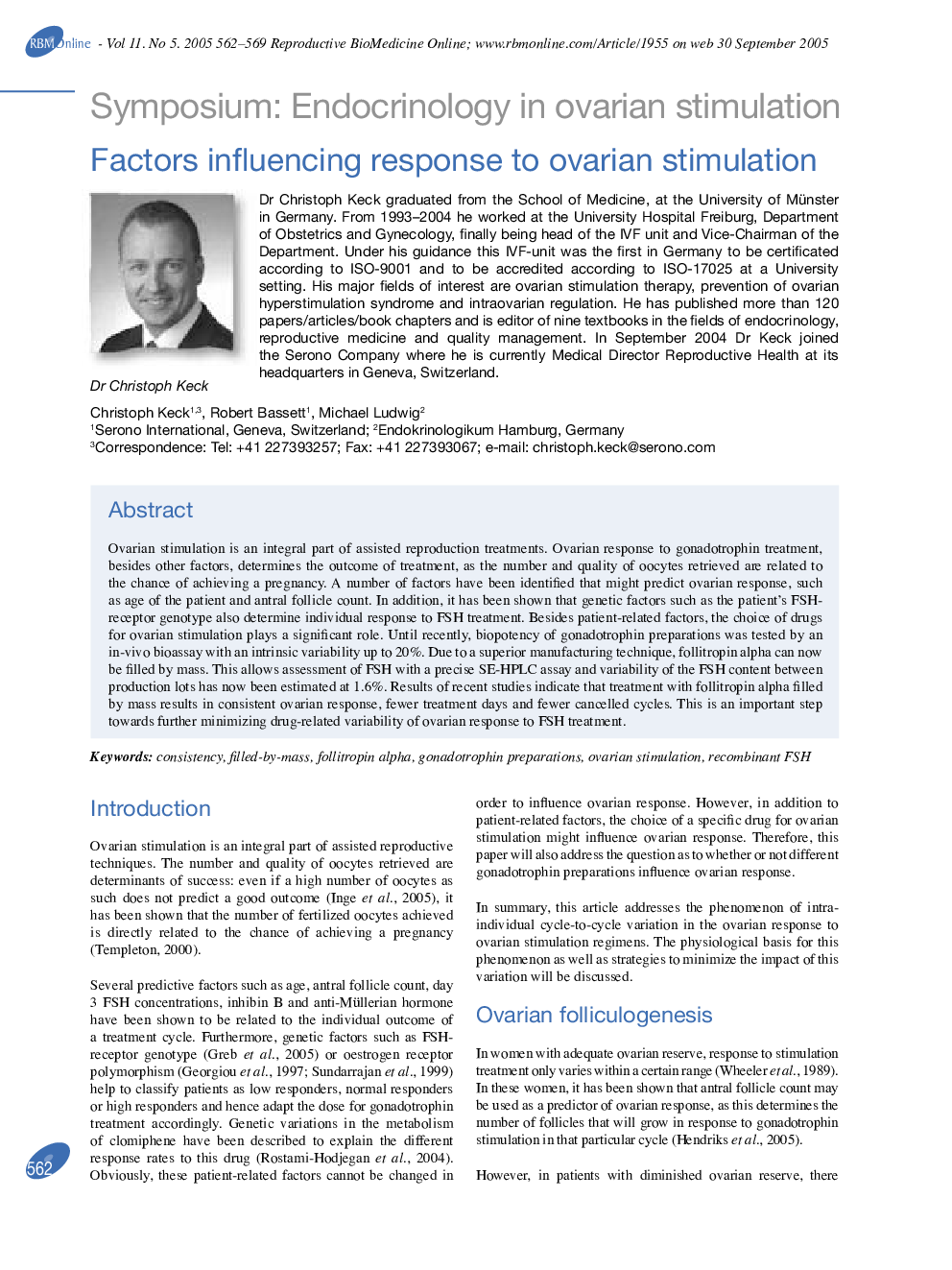| Article ID | Journal | Published Year | Pages | File Type |
|---|---|---|---|---|
| 9334876 | Reproductive BioMedicine Online | 2005 | 8 Pages |
Abstract
Ovarian stimulation is an integral part of assisted reproduction treatments. Ovarian response to gonadotrophin treatment, besides other factors, determines the outcome of treatment, as the number and quality of oocytes retrieved are related to the chance of achieving a pregnancy. A number of factors have been identified that might predict ovarian response, such as age of the patient and antral follicle count. In addition, it has been shown that genetic factors such as the patient's FSH- receptor genotype also determine individual response to FSH treatment. Besides patient-related factors, the choice of drugs for ovarian stimulation plays a significant role. Until recently, biopotency of gonadotrophin preparations was tested by an in-vivo bioassay with an intrinsic variability up to 20%. Due to a superior manufacturing technique, follitropin alpha can now be filled by mass. This allows assessment of FSH with a precise SE-HPLC assay and variability of the FSH content between production lots has now been estimated at 1.6%. Results of recent studies indicate that treatment with follitropin alpha filled by mass results in consistent ovarian response, fewer treatment days and fewer cancelled cycles. This is an important step towards further minimizing drug-related variability of ovarian response to FSH treatment.
Related Topics
Health Sciences
Medicine and Dentistry
Obstetrics, Gynecology and Women's Health
Authors
Christoph Keck, Robert Bassett, Michael Ludwig,
